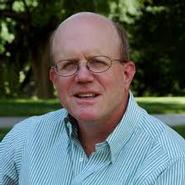
When describing the business world, “love” might not be the first thing that comes to mind. However, Jonathan Isham Jr., director of Environmental Studies, faculty director of the Middlebury Center for Social Entrepreneurship, and professor of economics at Middlebury College, explains how it is the very foundation of social entrepreneurship.
In addition to being an entrepreneur himself, co-founder of Brighter Planet, Isham is an advisor to former Vice President Al Gore’s Climate Project, 1Sky and the Presidential Climate Action Project. Isham spoke on Dec. 3 as part of the Levitt Center Lecture Series on the topic of Social Entrepreneurship in the Liberal Arts.
Isham began with a passage from the book of Corinthians to describe a type of deep and infinite love, known as agape. Despite the “secular” academics at Middlebury, Isham has used this same passage in two of his entrepreneurship classes, claiming that this passage, and others like it, grant us a deeper understanding of ourselves. He went on to assert that teaching about entrepreneurship, at its core, is teaching students about themselves.
One class in particular stands out as the “peak” of his career, a 20-student winter term course in 2005. This class studied the 1960’s Civil Rights Movement as a model for “the how and why” of profound social innovation, particularly noting how Martin Luther King Jr. put agape at the center of his message. Isham explains that empathy and love are the focal point of social entrepreneurship, putting the heart back into modern business and positively impacting society’s equilibrium.
Nailing down a definition can be difficult, however, social entrepreneurship is the concept of individuals identifying unjust social conditions and leading a creative process to bring about a civil and long lasting impact. Social entrepreneurship is on the rise, manifesting itself as a concentration in dozens of colleges and universities across the globe. These efforts are aided greatly by organizations such as the Skoll Foundation, which invest and connect social entrepreneurs. Ashoka, another prominent non-profit, was founded by Bill Drayton to support social entrepreneurs.
Drayton’s Changemaker Schools, an extension of Ashoka, focus on unleashing the energy and innovation of young people while teaching them skills of empathy.
Isham maintains that Liberal Arts schools, since their conception 2,000 years ago, focus on students reflecting, connecting, analyzing and engaging in affairs of the world. Quoting Hamilton’s motto, “Know Thyself,” Isham holds reflecting and connecting to the highest standards, believing that through these, individuals discover how they perceive themselves, and sort out conflicts with identity and agency. Ultimately social entrepreneurship is recognizing that we are all part of a larger community and then exercising our freedom to make a difference that will impact more than just ourselves.
